 Aberdeenshire
Aberdeenshire Angus
Angus Argyll & Bute
Argyll & Bute Ayrshire
Ayrshire Bedfordshire
Bedfordshire Berkshire
Berkshire Buckinghamshire
Buckinghamshire Cambridgeshire
Cambridgeshire Central Scotland
Central Scotland Cheshire
Cheshire Cornwall
Cornwall Cumbria
Cumbria Derbyshire
Derbyshire Devon
Devon Dorset
Dorset Dumfries & Galloway
Dumfries & Galloway Durham
Durham East Sussex
East Sussex East Yorkshire
East Yorkshire Edinburgh & Lothian
Edinburgh & Lothian Essex
Essex Fife
Fife Glasgow
Glasgow Gloucestershire
Gloucestershire Greater Manchester
Greater Manchester Hampshire
Hampshire Herefordshire
Herefordshire Hertfordshire
Hertfordshire Highlands
Highlands Inverness-shire
Inverness-shire Kent
Kent Lancashire
Lancashire Leicestershire
Leicestershire Lincolnshire
Lincolnshire Lochaber
Lochaber London
London Merseyside
Merseyside Midlands
Midlands Norfolk
Norfolk North Wales
North Wales North Yorkshire
North Yorkshire Northamptonshire
Northamptonshire Northumberland
Northumberland Nottinghamshire
Nottinghamshire Orkney Islands
Orkney Islands Oxfordshire
Oxfordshire Perthshire
Perthshire Scottish Borders
Scottish Borders Shetland Islands
Shetland Islands Shropshire
Shropshire Somerset
Somerset South Wales
South Wales South Yorkshire
South Yorkshire Staffordshire
Staffordshire Suffolk
Suffolk Surrey
Surrey Tyne & Wear
Tyne & Wear Warwickshire
Warwickshire West Sussex
West Sussex West Yorkshire
West Yorkshire Western Islands
Western Islands Wiltshire
Wiltshire Worcestershire
Worcestershire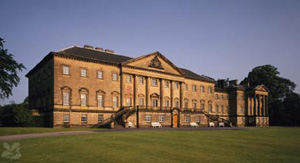
Nostell Priory is an 18th-century architectural masterpiece with Adam interiors, fine collections and landscape park. This beautiful stately home also boasts an exceptional collection of Chippendale furniture designed specially for the house and an i...
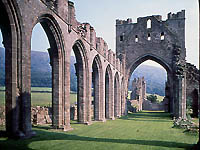
Priory of Augustinian canons founded early in the twelfth century in the beautiful and secluded Ewyas valley....

14th/15th-century farm buildings, formerly a priests' residence. The priests who lived here served the Chapel of St Nicholas (now destroyed). The Great Hall is open to visitors....

Former monastic buildings, now converted into two houses. South Cottage contains the Great Hall of the original priory....

14th-century gatehouse of medieval priory. Apart from the church, the gatehouse is all that is left of a 12th-century Augustinian priory, which was later strengthened following devastating raids by Robert the Bruce. The Dissolution of the Monasteries...
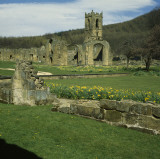
Ruin of a 14th-century Carthusian priory. This is England's most important Carthusian ruin. The individual cells reflect the hermit-like isolation of the monks; a reconstruction enables visitors to see the austere and simple furnishings. There is a s...
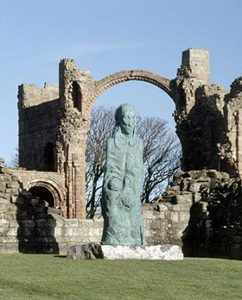
Lindisfarne Priory, cut off from the world by the tide twice a day, sits on the serene and beautiful Holy Island of Lindisfarne. The priory is famed as the home and original burial ground of St Cuthbert and is still a place of pilgrimage today. Take ...

The beautiful 12th-century church of the Augustinian priory of Brinkburn survives completely roofed and restored. Picturesquely set by a bend in the River Coquet, it is reached by a scenic 10 minute walk from the car park. Parts of the monastic build...
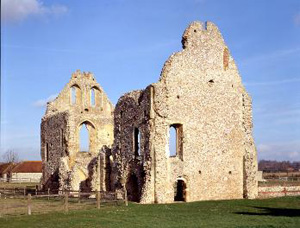
Boxgrove Priory guest house and other remains of a Benedictine priory: much of the fine 12th to 14th- century monastic church survives as the parish church....
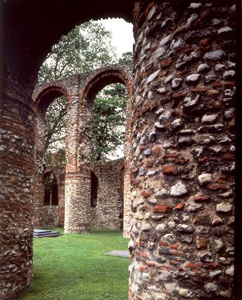
The remains of one of the first Augustinian priories in England, founded about 1100. An impressive example of early Norman architecture, built in flint and reused Roman brick, the church displays massive circular pillars and round arches and an el...
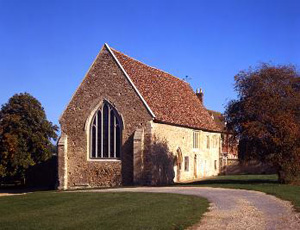
Bushmead Priory is a rare survival of the complete refectory of an Augustinian priory, with fine timber roof and notable 14th-century wall paintings....
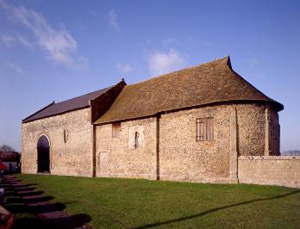
The best example in England of a small Norman Benedictine priory church, surviving in a surprisingly unaltered state despite later conversion into a barn....

The extensive remains of one of the most important East Anglian monasteries, the Cluniac Priory of Our Lady of Thetford. Founded in the early 12th century, it owed much of its prosperity to a miraculous appearance of the Virgin Mary, whose statue her...

A rare survival of the complete refectory of an Augustinian priory, with fine timber roof and notable 14th-century wall paintings....
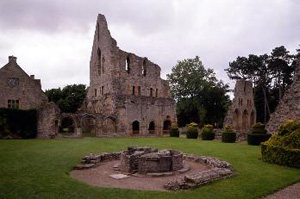
The tranquil ruins of medieval Wenlock Priory stand in a garden setting on the fringe of beautiful Much Wenlock. An Anglo-Saxon monastery was founded here in about 680 by King Merewalh of Mercia,whose abbess daughter Milburge was hailed as a saint. H...

The White Ladies Priory remains of a late 12th-century church of a small priory of Augustinian canonesses, surrounded by picturesque woodland....
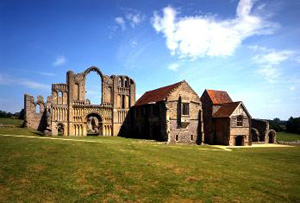
One of the largest and best preserved monastic sites in England, the foundation of Castle Acre Priory in about 1090 sprang directly from a visit by William de Warenne II and his wife Gundrada to the great French monastery of Cluny. So impressed were ...

The most complete and impressive monastic ruins in Norfolk, of a Benedictine priory with a well-documented but scandalous history. The nave, with its splendid 13th-century west front, is now the parish church, displaying a screen with medieval saints...
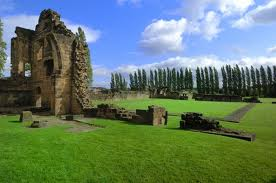
Monk Bretton Priory are the substantial ruins of a Cluniac monastery, with an unusually well-marked ground plan, an almost complete west range and a 15th-century gatehouse....

Mattersey Priory are now the remains, of mainly the 13th-century refectory and kitchen, of a small monastery for just six Gilbertine canons - the only wholly English monastic order....

Wetheral Priory Gatehouse is a 15th-century gatehouse of a Benedictine priory, where wrongdoers could claim pardon if they enlisted to fight the Scots. Wetheral Priory Gatehouse survived because it later served as the vicarage for the parish churc...

Standing close to Hadrian's Wall, the Augustinian priory of Lanercost was much involved in the Anglo-Scottish wars. During his last campaign in 1306-7 the mortally sick Edward I rested here for six months, before dying as he prepared to enter Scot...

Set in an almost impregnable position on a steep headland between the river and the North Sea, Tynemouth has always been as much a fortress as a religious site.
Here stood a 7th-century Anglian monastery, burial place of Oswin, sainted King of No...

The very extensive remains of a 13th-century priory, founded on the site of a retired pirate's hermitage. Part of it later served as a holiday retreat for the monks of Durham Cathedral. Beautifully sited by the River Wear, it can be reached from Durh...

Guisborough Priory are the ruins of an Augustinian priory founded by the Bruce family, afterwards Kings of Scotland. They are dominated by the dramatic skeleton of the 14th-century church's east end....
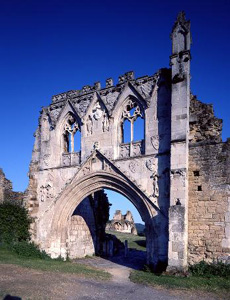
The riverside ruins of an Augustinian priory, including a gatehouse bedecked with the heraldry of the Roos family of Helmsley Castle, and a handsome set of monastic washbasins. Picturesquely set in the beautiful Derwent valley near the Yorkshire Wold...

This Benedictine Monastery established in around 1150, is the oldest standing building on Merseyside. First restored over a century ago the site continues to develop with museums displays, education/meeting/concert space and chapel dedicated to HMS ...
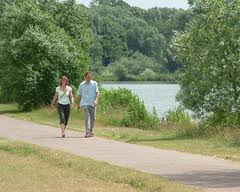
Priory Country Park is an established green area, of around 360 acres, made up of lakes, meadows and woodland, partially enclosed within a bend in the river Great Ouse. It is managed, for the benefit of both wildlife and visitors, by Bedford Boro...

Norton Priory Museum and Gardens in Runcorn, Cheshire, is a fantastic day out, with an award winning museum, excavated medieval ruins, the spectacular St Christopher statue, the lovely Walled Garden and the extensive woodland and sculpture trail. We ...

Alvecote Priorys' 3 acre site sits on a sharp bend of the Coventry Canal about 3 miles east of Tamworth, and is an ideal location for family picnics and games. Alvecote Priory mature shrubs and trees once formed the gardens of the house which was ...

From Burgundy to Beauly Beauly Priory was founded around 1230 by monks of the Valliscaulian order. They came from their mother house in Burgundy, in France, and settled beside the Beauly River, at the place where it enters the Beauly Firth. T...

A Valliscaulian House Ardchattan Priory was established in 1230 or 1231 by an obscure order of monks from France, the Valliscaulians. They followed a strict form of monastic rule, with emphasis more on the ascetic religious life than on manua...

Island sanctuary The enchanting ruins of Inchmahome Priory grace the largest of three islands in the Lake of Menteith. The priory was established around 1238 by a small community of Augustinian canons. Their founder and patron was Walter Comyn...

Whithorn Priory and Museum is set on one of the earliest Christian sites in Scotland, Whithorn was traditionally held to be founded by St Ninian in the 5th or 6th century. In the 12th century a priory for Premonstratensians was built here and became ...

Take a fascinating guided tour around the house and temple and learn more about the Buddhist way of life....

Priory Maze and Gardens has one of the most magical gardens in Norfolk, here you can experience peaceful relaxation in natural gardens of woodland, meadow and water.
...

Newburgh Priory is a magnificent family house set within the picturesque landscape of the Howardian Hills near Coxwold, North Yorkshire. Standing on the site of an Augustinian priory, which was founded in 1145, it is a fine stately home in a superb s...
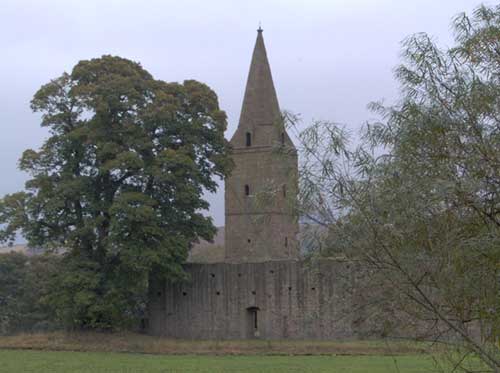
The ancient priory church at Restenneth, by Forfar, is believed to have been founded by Nechtan, king of the Picts about 715. He sent to the Abbot of Wearmouth, near Corbridge, to ask for instruction in the Christian faith, and also for builders who ...

There has been a church on this site since around 800 A.D.
The present building was begun in 1094 by Ranulf Flambard and has since been in continuous use as a place of prayer and pilgrimage.
Visitors never fail to be amazed to find such a beaut...

Join us beneath the 21st Century city to discover what time had preserved for use beneath the rubble of this once magnificent religious centre....
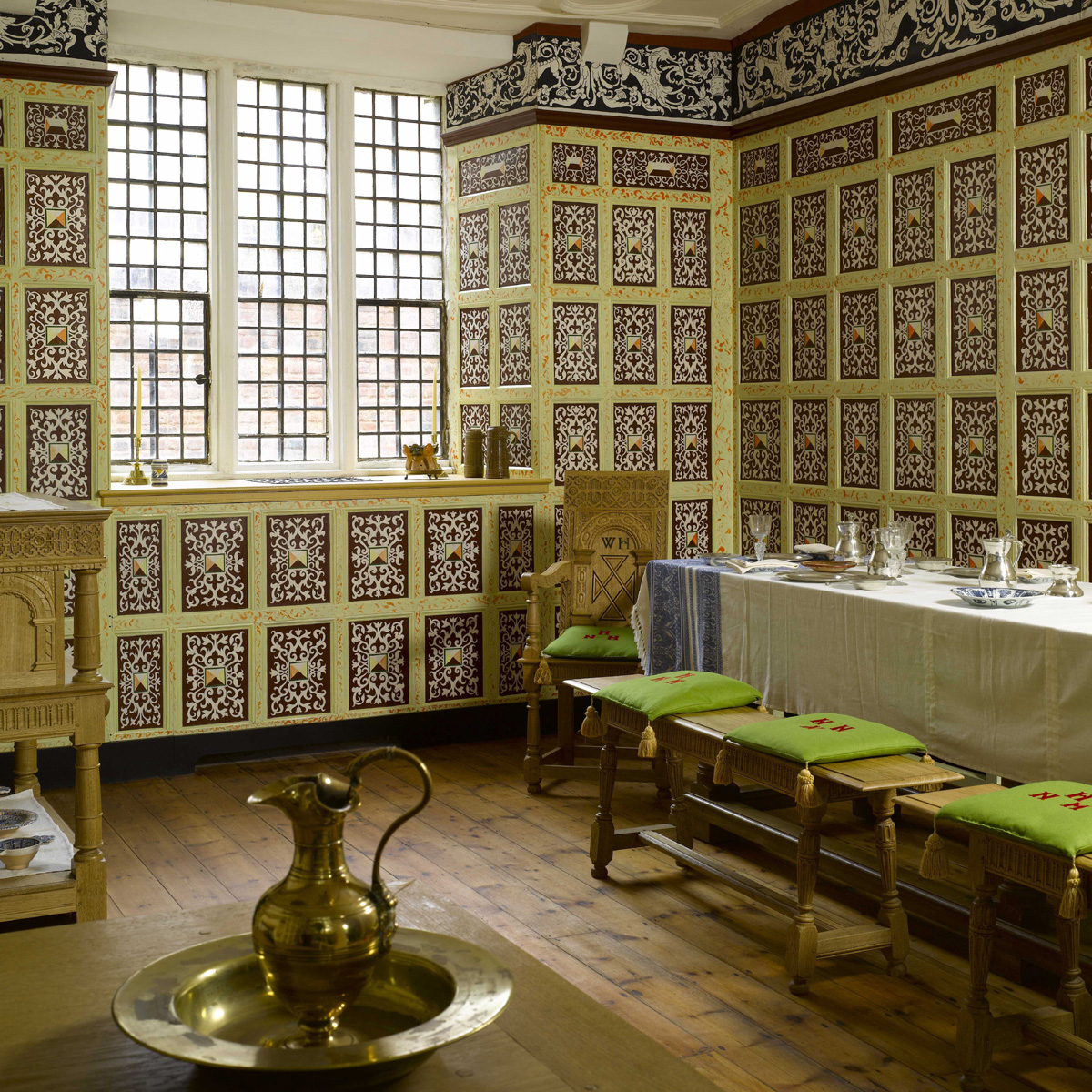
Adorned with quality replica furniture and painted in the bright colours of the period, the Priory is presented as the 1602 home of the wealthy Hurst family. The display of Elizabethan items from the city's collection, the addition of modern amenitie...

Michelham Priory is a very beautiful historic property nestling deep in the Sussex countryside and offers much to interest visitors - history, exhibits, superbly kept gardens, art exhibitions, wildlife, working watermill. There is a well-stocked Gift...

Llanthony Secunda Priory is a hidden gem in the heart of an industrial landscape, the remains of a mediaeval priory of Augustinian Canons.
On the edge of the Docks remains what was once one of Britain's foremost priories. It is today called Llant...
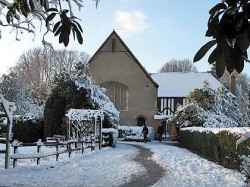
Prittlewell Priory Museum is a stunning building which tells the story of it's former residents. From the Cluniac Monks in the 13th Century to the Victorian Family, the Scrattons, the last to live in this wonderful home. ...
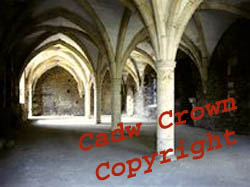
Originally founded as a daughter house of Savigny in 1130, the abbey was absorbed into the Cistercian order in 1147....
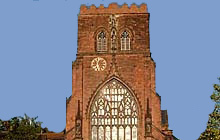
Shrewsbury Abbey is full of history.
In 1283 the first English Parliament in which the Commons had a legal share took place in the Abbey Chapter House, and in 1398 Richard II summoned the Great Parliament in the Abbey.
The Abbey was finally su...
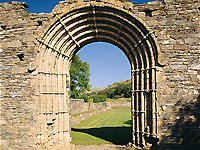
Strata Florida Abbey was initially founded in 1164 on a nearby site, the present buildings were erected under the patronage of the Lord Rhys (d. 1197). The Cistercians at Strata Florida were loyal supporters of the Welsh Princes. Traditional burial p...
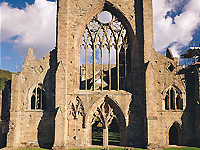
The area surrounding Tintern Abbey is that of outstanding beauty complemented by this outstanding beauty in stone. If only the walls could talk! The chants of countless monks echo through the masonry here. Despite the shell of this grand structure be...
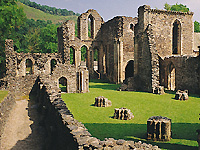
Extensive remains of Cistercian abbey founded in 1201. The church dates from the thirteenth century, and the east range of the cloister was remodelled around 1400. There is a fine collection of medieval memorial sculpture....
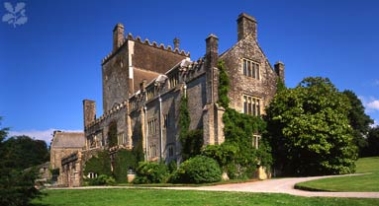
700-year-old building with fine 16th-century great hall, associated with Elizabethan seafarers Drake and Grenville. Tucked away in its own secluded valley above the River Tavy, Buckland was originally a small but influential Cistercian monastery. The...
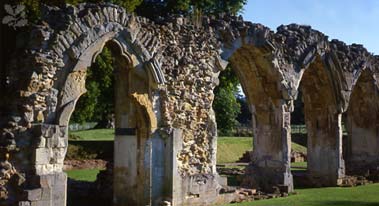
13th-century Cistercian abbey. Founded in 1246 and once a celebrated pilgrimage site, the abbey now lies in ruins. Remains of the dramatic cloister arches survive and there is a small museum....
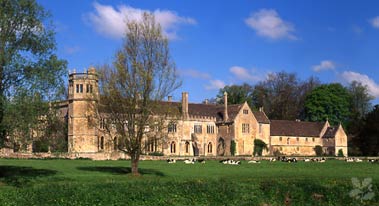
Country house created out of a medieval abbey, the home of William Henry Fox Talbot, a pioneer of photography. Founded in 1232 and converted into a country house c.1540, the fine medieval cloisters, sacristy, chapter house and monastic rooms of the A...
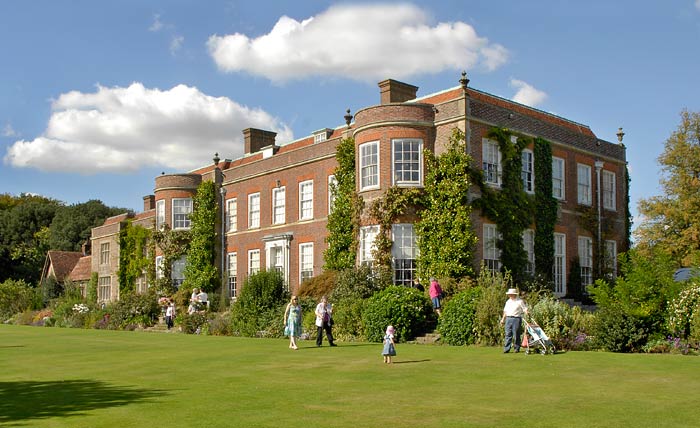
Historic and atmospheric riverside estate. Set amidst glorious countryside along the River Test, this 12th-century Augustinian priory was converted into a private house after the Dissolution of the Monasteries, and still retains the spring or 'font' ...

Jacobean-style country house with collection of treasures, set in fine formal and informal gardens. The house, dating from 1600 and built on the site of a 12th-century Augustinian priory, houses a unique collection representing the tastes of one man,...

Ramsey Abbey Gatehouse are now the remains of a former Benedictine abbey. Fragments of Ramsey Abbey Gatehouse, built on an island in the Fens, include the richly carved late 15th-century gatehouse with its ornate oriel window....
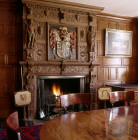
Vivid example of a great country house in decline, with extraordinary contents, historic park and restored garden. This baroque mansion, built 1701-4 and set in a stunning landscape park, has become famous as a graphic illustration of the English cou...
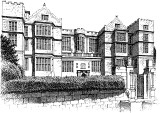
Cistercian abbey, Georgian water garden and medieval deer park. One of the most remarkable places in Europe, this World Heritage Site comprises the spectacular ruin of a 12th-century Cistercian abbey and monastic watermill, an Elizabethan mansion (tw...
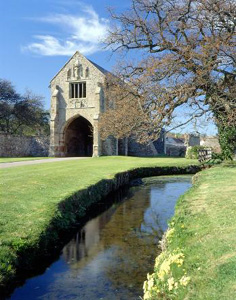
The picturesque Cistercian abbey of Cleeve boasts the most impressively complete and unaltered set of monastic cloister buildings in England, standing roofed and two storeys high. They include the gatehouse, the 15th-century refectory with its glorio...
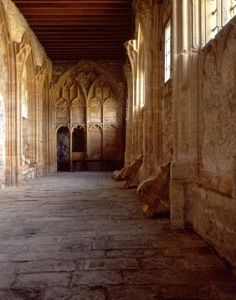
Muchelney, the atmospheric and once-remote 'great island' amid the Somerset Levels, has many rewards for visitors. Beside the clearly laid out foundations of the wealthy medieval Benedictine abbey (and its Anglo-Saxon predecessor) stands a complete e...

Part of a monastic building, perhaps the abbot's lodging, of Bendictine Abbotsbury abbey. St Catherine's Chapel is within half a mile....
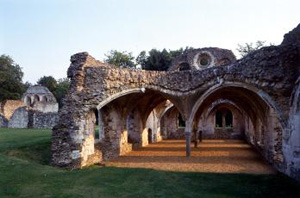
Fragments of the church and monastic buildings of the first Cistercian abbey in England. Waverley Abbey was founded in 1128....
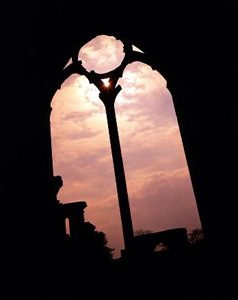
The most complete surviving Cistercian monastery in southern England, with almost all the walls of its 13th and 14th-century church still standing, along with many monastic buildings. Though under royal patronage, maritime Netley was never wealthy, a...

Titchfield Abbey is a medieval abbey and later country house, located in the village of Titchfield near Fareham in Hampshire, England. The abbey was founded in 1222 for Premonstratensian canons, an austere order of priests. The abbey was a minor hous...
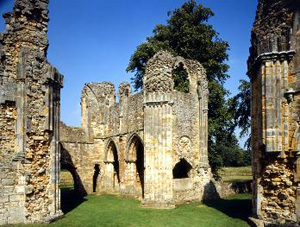
Bayham Old Abbey is an impressive ruin of an abbey of Premonstratensian 'white canons', on the Kent-Sussex border. They include much of the 13th to 15th-century church, the chapter house, and a picturesque 14th-century gatehouse. Now set in an ...

Everyone knows at least one date in English history - 1066, the year the invading Normans defeated the Anglo-Saxons at the Battle of Hastings. In fact the two armies did not fight at Hastings, but at a place by the town now named Battle. In the ruins...

This great abbey, marking the rebirth of Christianity in southern England, was founded in AD 597 by St Augustine. Originally created as a burial place for the Anglo-Saxon kings of Kent, it is part of the Canterbury World Heritage Site, along with the...
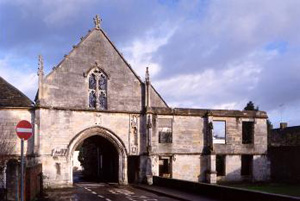
Kingswood Abbey Gatehouse is a 16th-century gatehouse, one of the latest monastic buildings in England. Kingswood Abbey Gatehouse displays a richly sculpted mullioned window. It is the sole survivor of this Cistercian abbey....
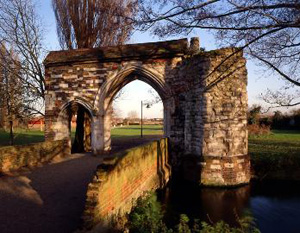
Explore the fascinating remnants of one of the great monastic foundations of the Middle Ages at this important site, based in the historic market town of Waltham Abbey. With origins dating back to the early 11th century, the site adopted many rel...
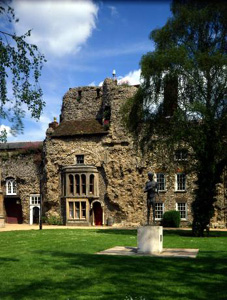
The imposing stone walls, with added towers for catapults, of a Roman 3rd-century Saxon Shore fort. Panoramic views over Breydon Water, into which the fourth wall long since collapsed.
...
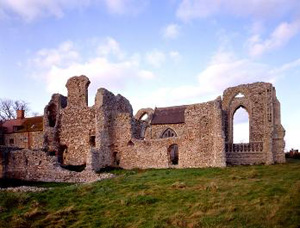
One of Suffolk's most impressive monastic ruins, of a 14th-century abbey of Premonstratensian 'white canons', with a 16th-century brick gatehouse.
...
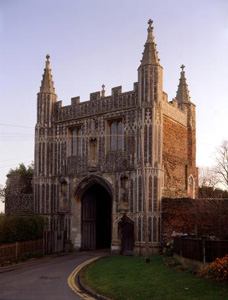
This elaborate pinnacled 15th-century gatehouse, in East Anglian flushwork, is the sole survivor of the Benedictine abbey of St John. It was stormed by Parliamentarian soldiers during the Civil War siege of 1648....
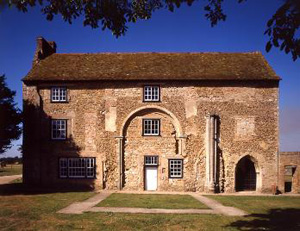
Denny Abbey and the Farmland Museum in Cambridgeshire has a unique and fascinating history. Founded in 1159 as a Benedictine monastery, it then became a retirement home for elderly Knights Templars. After the Templars' suppression for alleged heresy ...
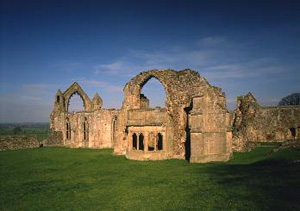
Haughmond Abbey are now the extensive remains of an Augustinian abbey, including its abbots' quarters, refectory and cloister. The substantially surviving chapter house has a frontage richly bedecked with 12th and 14th century carving and statuary, ...

The founding community was brought to Lilleshall Abbey from Dorchester Abbey in Oxfordshire and, as at Dorchester, for a time the canons followed the specific customs and daily religious observance of the important Augustinian monastery at Arrouaise ...
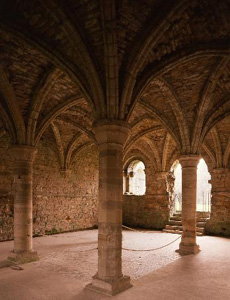
The extensive ruins of a Cistercian abbey, including much of its fine 12th-century church. In a woodland setting beside the River Severn, not far from the Iron Bridge....
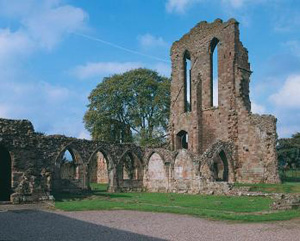
The impressive remains of an abbey of Cistercian 'white monks', including towering fragments of its 13th-century church, infirmary and 14th-century abbot's lodging.
...
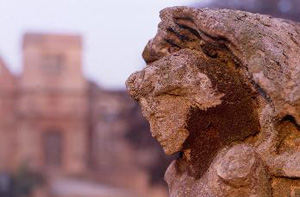
The best-preserved remains of a Cistercian abbey west cloister range in England, dating mainly from c. 1170. Incorporated into part of a 17th-century and later mansion, set in Rufford Country Park....

Creake Abbey is the ruined church of an Augustinian abbey, reduced in size after fire and plague....
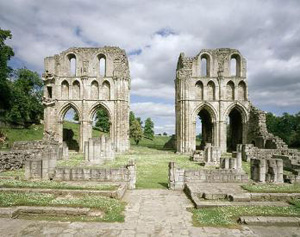
Beautifully set in a valley landscaped by 'Capability' Brown in the 18th century, the most striking feature of this Cistercian abbey is the tall eastern end of its church, built in the new Gothic style in about 1170. It also displays one of the most ...

Sawley Abbey are now the remains of a Cistercian abbey founded in 1148, set on the banks of the Ribble against a backdrop of dramatic hills. After Sawley Abbey's dissolution in 1536, the monks were briefly returned to the abbey during the Pilgrima...
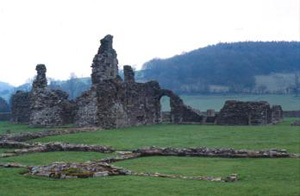
Whalley Abbey Gatehouse is a 14th-century gatehouse of the nearby Cistercian abbey, the second wealthiest monastery in Lancashire, beside the River Calder. The first floor was probably a chapel....

The enormous and ornate fortified gatehouse of Thornton Abbey is the largest and among the finest of all English monastic gatehouses. An early example of brick building in England, it proclaimed the wool tradebased prosperity of one of the wealthiest...

Shap Abbey is an impressive full-height 15th-century tower and other remains of a remote abbey of Premonstratensian 'white canons'....
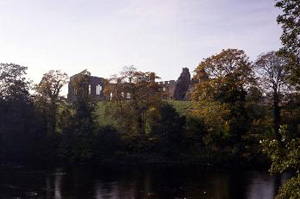
The charming ruins of a small monastery of Premonstratensian 'white canons', picturesquely set above a bend in the River Tees near Barnard Castle. Remains include much of the 13th-century church and a range of living quarters, with traces of their in...
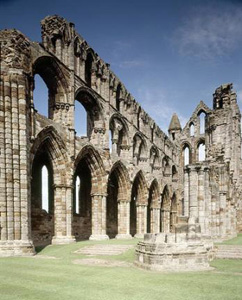
Set on a headland high over the popular seaside town, Whitby Abbey is the perfect choice for a great value day trip in Yorkshire. It's easy to see how Bram Stoker was inspired by its gothic splendour when writing Dracula. This is one of the most atmo...
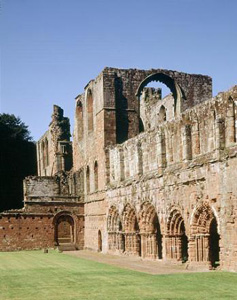
The impressive remains of an abbey founded by Stephen, later King of England, including much of the east end and west tower of the church, the ornately decorated chapter house and the cloister buildings. Originally of the Savigniac order, it passed t...
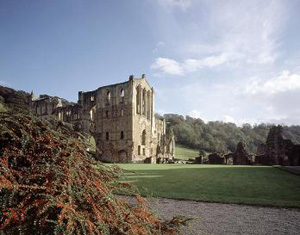
'Everywhere peace, everywhere serenity, and a marvellous freedom from the tumult of the world.' These words, written over eight centuries ago by the monastery's third abbot St Aelred, could describe Rievaulx today. Rievaulx Abbey is set in a beaut...
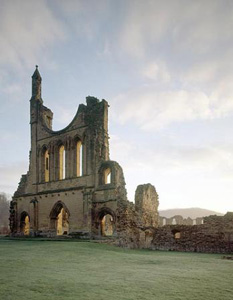
Byland was one of the great Yorkshire Cistercian abbeys, housing at its zenith well over 200 monks and lay brothers. Much of its huge cathedral-sized church survives, including the whole north side and the greater part of the 13th-century west front....
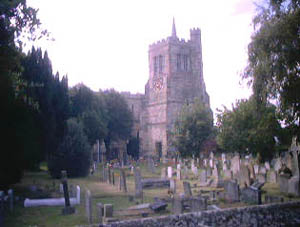
Is the truncated remnant of a larger monastic church founded in 1078. Overlooking Elstow green and Moot Hall the church has two stain glass windows connected with Bunyan, one depicts scenes from the Pilgrims Progress and the other the Holy War. ...
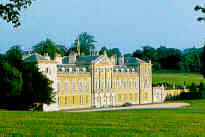
Visitors will experience living history at Woburn Abbey - the Russell family has lived here for almost 450 years and it is still the family home of The Marquess of Tavistock, the Duke of Bedford's eldest son, his wife and their three sons. Successive...
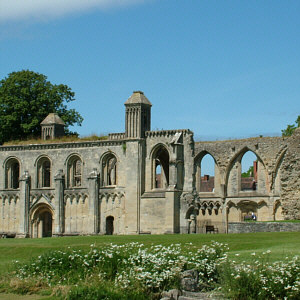
Generally speaking people come to the Abbey for three reasons. First, they want to see a living Christian sanctuary that may have been the site of the oldest church, and was certainly once the greatest Abbey, in the country. Second, they come because...
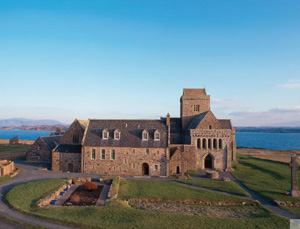
Cradle of Christianity Iona is a holy isle, an enduring symbol of Christianity in Scotland. St Columba and his followers came here from Ireland in AD 563 and founded a monastery that became the heart of the early Scottish Church. St. Columbaâ€...
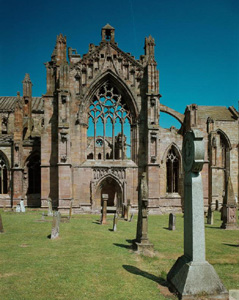
Melrose Abbey is a magnificent ruin on a grand scale with lavishly decorated masonry. The Abbey is thought to be the burial place of Robert the Bruce's heart, marked with a commemorative carved stone plaque within the grounds. Visitors can also visit...

Deer Abbey was a Cistercian monastery in Buchan, Scotland.[1] It was founded by 1219 AD with the patronage William Comyn, jure uxoris Earl of Buchan,[2] who is also buried there. There was an earlier community of Scottish monks or priests. The not...

Arbroath Abbey is a testament to the dynamic piety of Scotland’s medieval monarchs. It was founded in 1178 by King William I ‘the Lion’ as a memorial to his childhood friend Thomas Becket, Archbishop of Canterbury, who was murdered in 1170. ...

A house of canons Cambuskenneth Abbey was founded around 1140 by canons of the Arrouaisian order, but subsequently passed to the Augustinians. The founder was David I. Cambuskenneth served Stirling Castle, one of David’s favoured residences,...

The remains of a Cistercian monastery founded in 1217. The eastern parts of the Abbey Church are the present parish church. There are ruins of the nave, cellars and domestic buildings. At the head of the village of Culross off the A985. Access by ...

A royal foundation Dunfermline Abbey has a history stretching back to the 11th century – the time of King Malcolm III and Queen Margaret. In the 12th century, their son, David I, raised the little priory to the lofty status of abbey. He endo...

A daughter of Cluny Crossraguel Abbey stands silent and ruined today. Yet because of its completeness it still conveys much of the peace and spiritual glory of the monks who served here through four centuries. It was founded early in the 13th ...

Kilwinning Abbey is the much-reduced remains of a Tironensian-Benedictine abbey, established from Kelso. The surviving fragments of Kilwinning Abbey include parts of the abbey church and chapter house. Most of the remains date back to the 13th centur...

Holyrood Abbey is the ruined nave of the 12th and 13th century abbey church. The church was built for Augustinian canons. The abbey and palace administered by the Lord Chamberlain. Access to Holyrood Abbey is through the Palace of Holyroodhouse,...

Dryburgh sits by the Tweed River. Its remarkably complete medieval ruins makes it easy to appreciate the attractions of monastic life. The abbey buildings were destroyed by fire three times and ravaged by war on four occasions but fine examples of ec...

Jedburgh Abbey, founded in 1138, was a frequent target for invading border armies. Today, there is a cloister and herb garden to explore, and a visitor centre containing 8th century carvings and artefacts excavated from the abbey grounds....

The west end of the great abbey church of the Tironensians, brought to Kelso in 1128 by David I. Even in its fragmentary state, this is a superb piece of architecture.
...

A Cistercian house Dundrennan Abbey was founded in 1142 by Fergus, Lord of Galloway, with the help of King David I of Scotland. The white-robed Cistercian monks came from Rievaulx Abbey, in North Yorkshire. After establishing the abbey at Dund...

A Cistercian retreat Glenluce Abbey was founded around 1192 by Roland, Lord of Galloway. The white-clad Cistercian monks who settled in this secluded valley of the Water of Luce most probably came from Dundrennan Abbey, near Kirkcudbright. The...

The old mill by the stream Beside the Pow Burn in the pretty village of New Abbey stands a three-storey whitewashed mill building. It was built around the end of the 18th century by the Stewarts of nearby Shambellie House. But the site probabl...

A place of personal devotion In 1268, Lord John Balliol died. His grieving widow, Lady Dervorgilla of Galloway, had his heart embalmed and placed in an ivory casket. She carried it with her everywhere. She undertook many charitable acts in...
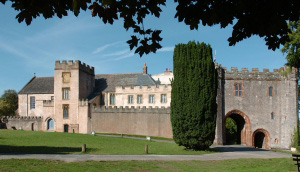
Torre Abbey is the oldest building in Torquay. It has a story spanning 800 years and was once the most important Abbey of its kind in England, the brothers who lived here then were known as the White Canons. Following a massive three-year restoration...

LazerZone is a fun packed lazer game, fight through the semi dark maze with your lazer gun and back pack. But be CAREFUL! not to get shot yourself. You will be given advice by our expert marshals, so you can enjoy the fun....

Our Softbrick play construction has a lot of thrilling play and learning activities for children between 2 and 8yrs (height restriction is 1.5m).
...

Your journey will take you through Embsay Station which was built in 1888 to Bolton Abbey the award winning station. During your journey you will be taken through the beautiful scenery of the Yorkshire Dales....

The Shirehall Museum and Abbey Gardens are housed around the ruins of the Augustinian priory which was the site of the original shrine and holy house and are placed in around 20 acres of natural and peaceful gardens....

Easby Abbey are now the substantial remains of an abbey of Premonstratensian 'white canons', probably most notable for its lavish roof-height refectory of c. 1300 and other monastic buildings. Within the precinct is the still-active parish church,...
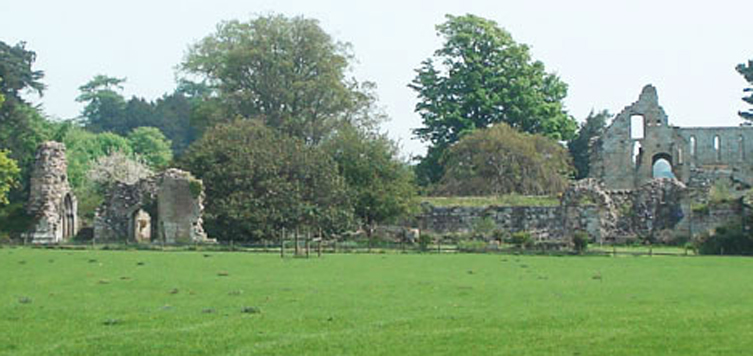
Founded in 1156, Jervaulx Abbey was once a great Cistercian monastery. Plundered and pillaged during the Dissolution of the Monasteries in the 16th century, the Abbey now stands as an enchanting, charming and atmospheric ruin, allowed to flourish by ...

Bolton Abbey is in the heart of the Yorkshire Dales on the banks of the River Wharfe. With just under 30,000 acres of beautiful countryside, over 80 miles of footpaths and ample space to run around and enjoy the fresh air, there is something for all ...

Paisley Abbey was founded when Walter Fitzalan, the High Steward of Scotland, signed a charter at Fotheringay for the founding of a Cluniac monastery on land he owned in Renfrewshire, approximately seven miles from Glasgow. Thirteen monks came from M...
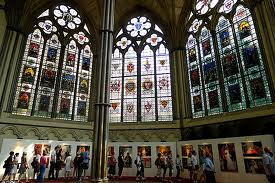
In the East Cloister is the 'incomparable' octagonal Chapter House, dating from the 1250s. It is one of the largest in England. The monks met here every day for prayers and to read a chapter from the rule of St Benedict and discuss the day's work...
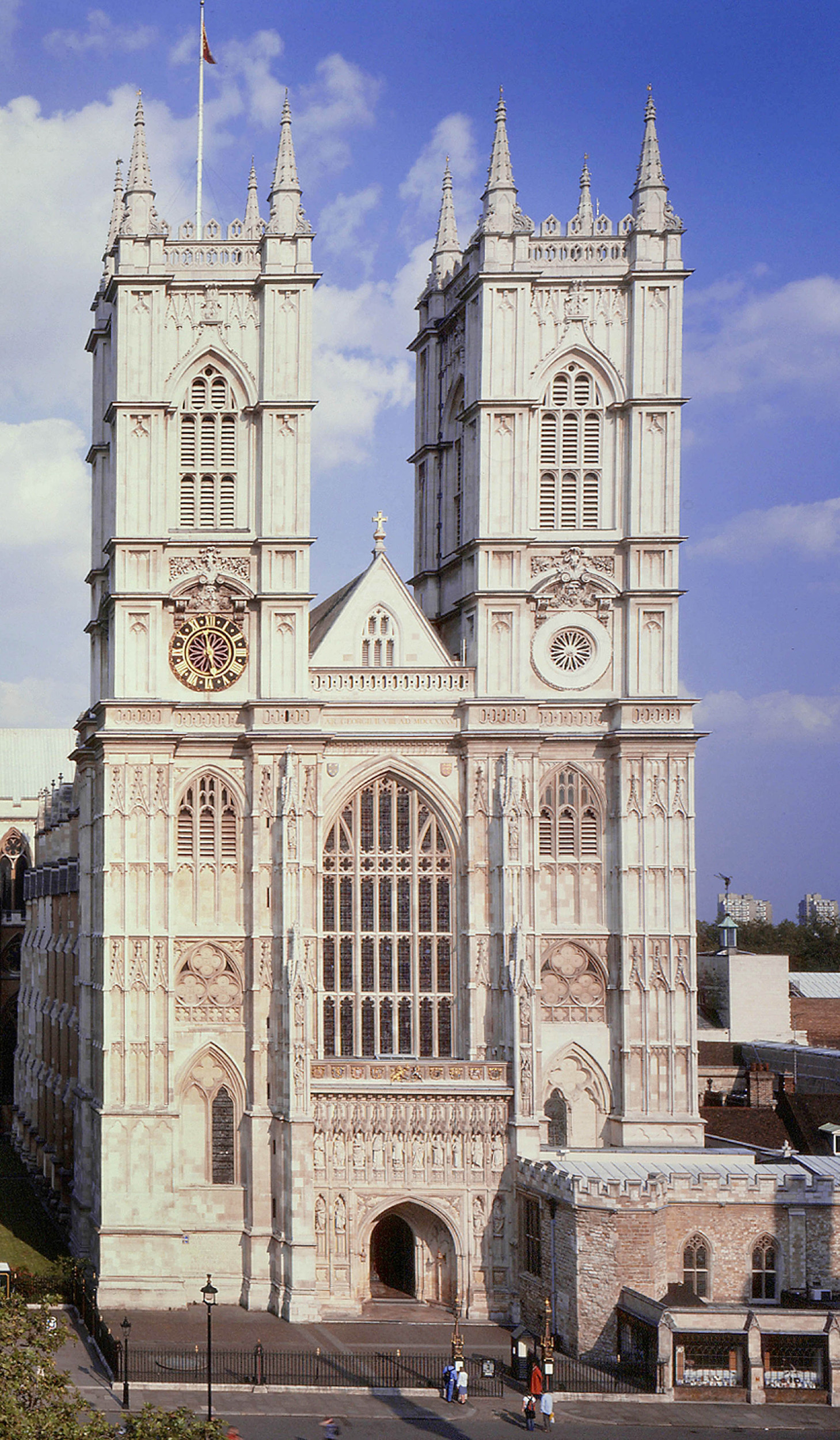
Kings, queens, statesmen and soldiers; poets, priests, heroes and villains - the Abbey is a must-see living pageant of British history. Every year Westminster Abbey welcomes over one million visitors who want to explore this wonderful 700-year-old bu...

Columba’s Isle Inchcolm means ‘Columba’s Isle’, though the ‘Iona of the east’ has no known link with St Columba. The island is dominated by its dramatically located abbey complex, comprising the best-preserved group of monastic bui...

Pluscarden Abbey is the home of a community of Roman Catholic Benedictine monks. It is the only medieval monastery in Britain still inhabited by monks and being used for its original purpose. Situated six miles south-west of Elgin in Moray, the monas...

For nearly 200 years, Stapehill Abbey was a place of quiet retreat and meditation locked away from the outside world, Home to a Silent Order of Nuns.
Today you can still experience the peace and serenity in the fully-restored Nun's Chapel, stroll ...

The story of the Abbey and its inhabitants has been vividly brought to life in a new, state-of-the-art museum.
The museum is decorated in dramatic medieval colours chosen to reflect the interior of the original Abbey church.
The museum houses ...

A warm welcome to the Abbey's website. I hope you will find here the information you are seeking. There are also a number of important links to other sites which will tell you more.
Founded by St. Aldhelm in AD 705, the Abbey has developed from S...

Abbey Dore Court Garden is located at the Southern end of the beautiful Golden Valley in South Herefordshire, just 15 miles from Hay-on-Wye, 12 miles from Hereford and 15 miles North of Abergavenny.
Just in view of the famous 1147 Cistercian Abbe...

Benedictine monasticism was part of the landscape of Mediaeval Britain, but the Reformation in England and the Dissolution of the Monasteries brought an end to the monastic life in England and Wales. The age of the great Abbeys like Canterbury, Westm...

Cathedral and Abbey Church of St Alban stands over the place where Alban, the first martyr, was buried after giving his life for his faith over 1700 years ago, that is more than 200 years before St Augustine arrived in Canterbury....

Abbey Pumping Station is Leicester's Museum of Science and Technology, displaying Leicester's industrial, technological and scientific heritage.
Situated adjacent to the National Space Centre, the two attractions tell the story of over 200 years o...

Substantial remains of the simple abbey church, founded in 1198 by Maredudd ap Cynan for the Cistercian order....
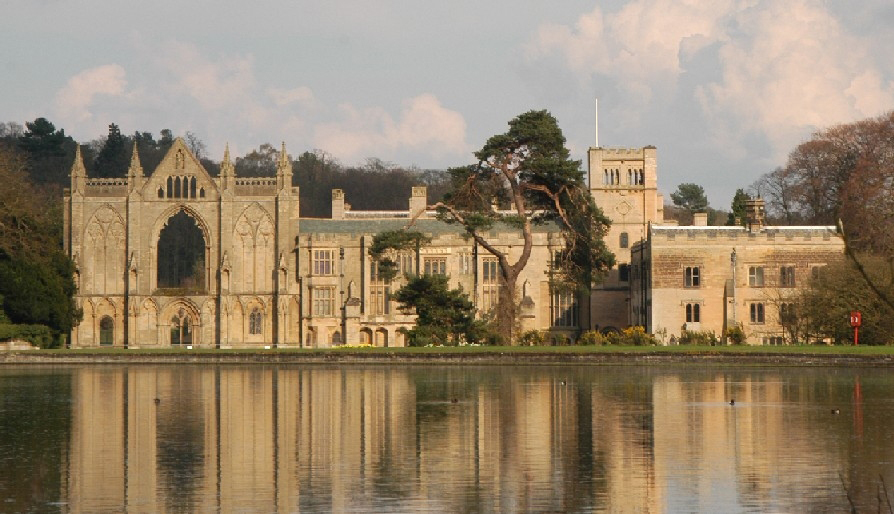
Experience the romance and mystery of the ancestral home of famous poet Lord Byron. Set within a glorious landscape of gardens and parkland, the abbey still contains the medieval cloisters, Victorian room settings and private apartments of Lord B...

The beautiful gatehouse, spanning the road, is much restored. On the left, it is flanked by the church of St. Nicholas, built by Abbot Nicholas of Culham (1289-1307). The main buildings of the Abbey were on the left as you proceed up the road through...

The Museum has displays in the oak-panelled, 16th century Old School Room in the Abbey Guest House and in the Abbey’s Cloister Gallery. The intention is for these displays 'to be a guide to the past and present of the village of Dorchester-on-Thame...

Forde Abbey is a treasure in an area already known for its outstanding beauty. More than 900 years of history and romance are encapsulated in this elegant former Cistercian monastery and its 30 acres of award winning gardens.
The amazing variety f...
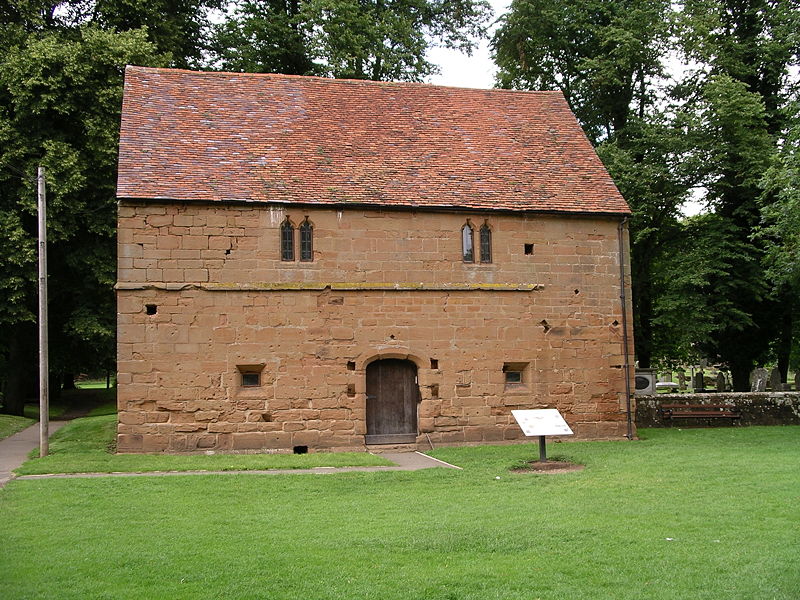
Small museum housed in medieval building formerly part of the Abbey of St Mary the Virgin.
Collection of stonework and tiles from the ruined abbey and an exhibition of the history of the Abbey. Also exhibits of interest of old Kenilworth. Explanat...

Welcome to Abbey House Museum where you can experience the sights and sounds of life in Victorian Leeds in the year 1880! A journey through the carefully recreated streets and houses of Abbey House Museum is a great day out for all the family....

The Abbey Light Railway is a privately owned 2-foot gauge railway running for a quarter of a mile from our depot on Bridge road, through scenic woodland into the grounds of the historic Kirkstall Abbey....

Kirkstall Abbey was founded as a result of a solemn vow made by Henry de Lacy, Baron of Pontefract Castle. He promised to give land to the Cistercian Order of monks if he recovered from a severe illness. On the 19th May 1152 the monks moved to Kirkst...

Probably the best garden visit you could ever make awaits you at Abbey House Gardens in ancient Malmesbury, itself an historic place to visit. Gardening ideas, beautiful plants from daffodils, crocus, tulips and iris in spring through the country's l...

Founded by St Aldhelm in Saxon times. Pavise/treasury containing c1407 manuscript bible and other books, and historical exhibits. Outstanding south porch. Burial place of King Athelstan (c895-940), the first king of all England. Situated in an attrac...

Only one mile from Hartland Quay, Hartland Abbey lies across a narrow, sheltered valley which winds its way to the spectacular Atlantic Coast. Within a designated ‘Area of Outstanding Natural Beauty’ visitors may wander around the beautiful garde...

Since time immemorial, deer have been drawn to graze in the sheltered.
meadows which line the banks of the river Dart in this Devonshire valley and quench their thirst in the cooling waters which flow here from high up on the moors and down towar...

Today in the peace of this beautiful church, it is difficult to believe that it has seen great violence and tragedy. In 1471, after the Battle of Tewkesbury, the defeated Lancastrian soldiers seeking sanctuary in the Church, were massacred by the vic...

Saint Michael's Abbey, Farnborough, is a contemplative monastery of monks of the Benedictine Order about thirty miles from London, England. The monks live the Benedictine life in its classic or 'continental' form. At the heart of our life is the sole...
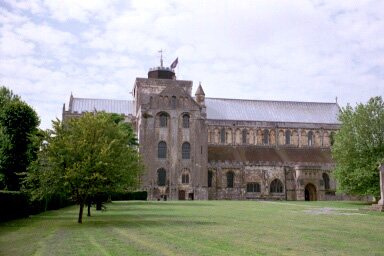
Romsey Abbey is one of the finest examples of Norman architecture in Southern England. Dedicated to St Mary and St Ethelflæda, an Abbess of Romsey at the time of the first millennium, it is home to a thriving community of Christians. Whether you pl...
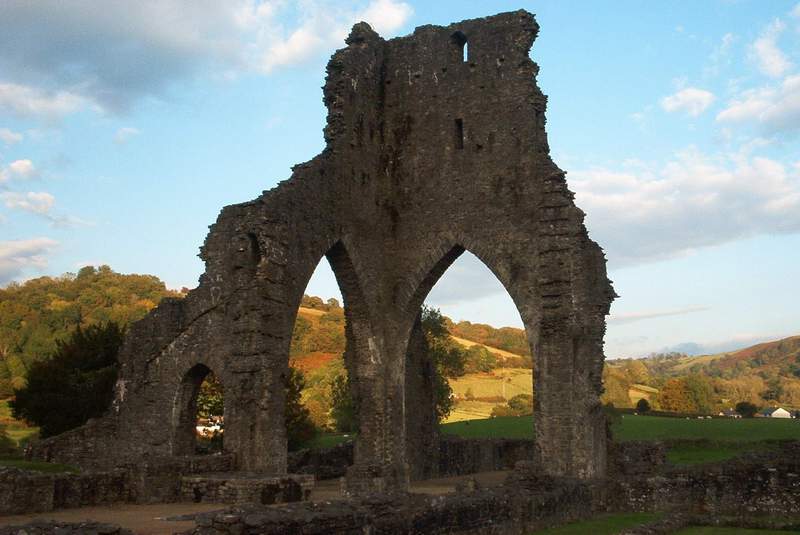
Talley Abbey is a twelfth century remains of a Premonstratensian Abbey. Talley Abbey was founded for the Premonstratensian order by the Lord Rhys, between 1184 and 1189. Parts of the abbey church survive....
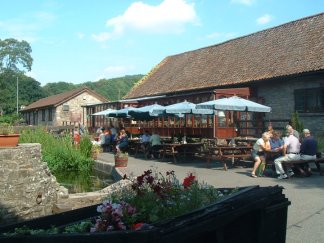
Award winning Abbey Mill is a well-established independent family business and has been trading in Tintern village for the past 70 years. Set amidst breathtaking scenery in the heart of the Wye Valley and situated on the banks of the River Wye in the...
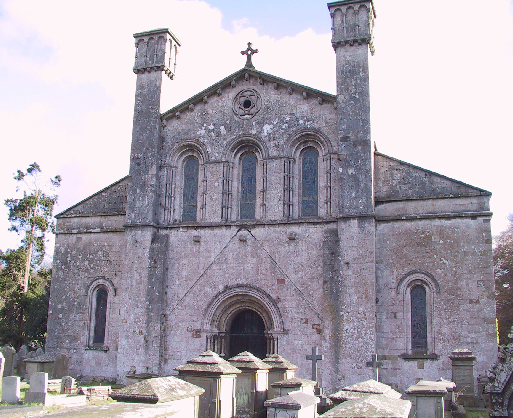
Margam Abbey Church, founded in 1147 is the only Cistercian Foundation in Wales whose nave is still intact and used for Christian worship. Other remains of the Monastery include a twelve-sided Chapter House in early English style located within Marga...
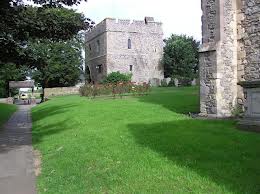
Minster Abbey Gatehouse Museum houses a wide range of exhibits including Fossils, Roman coins, radios, wartime relics, Victoria costumes, local paintings, and photographs, all set within the distinctive 1,000 year old Gatehousee building. Outstand...

Lambeth Palace acts as a home for the Archbishop and his family when in London and as the central office for his national and international ministry. The Archbishop employs several dozen staff to support him in his work there. In addition to the ...